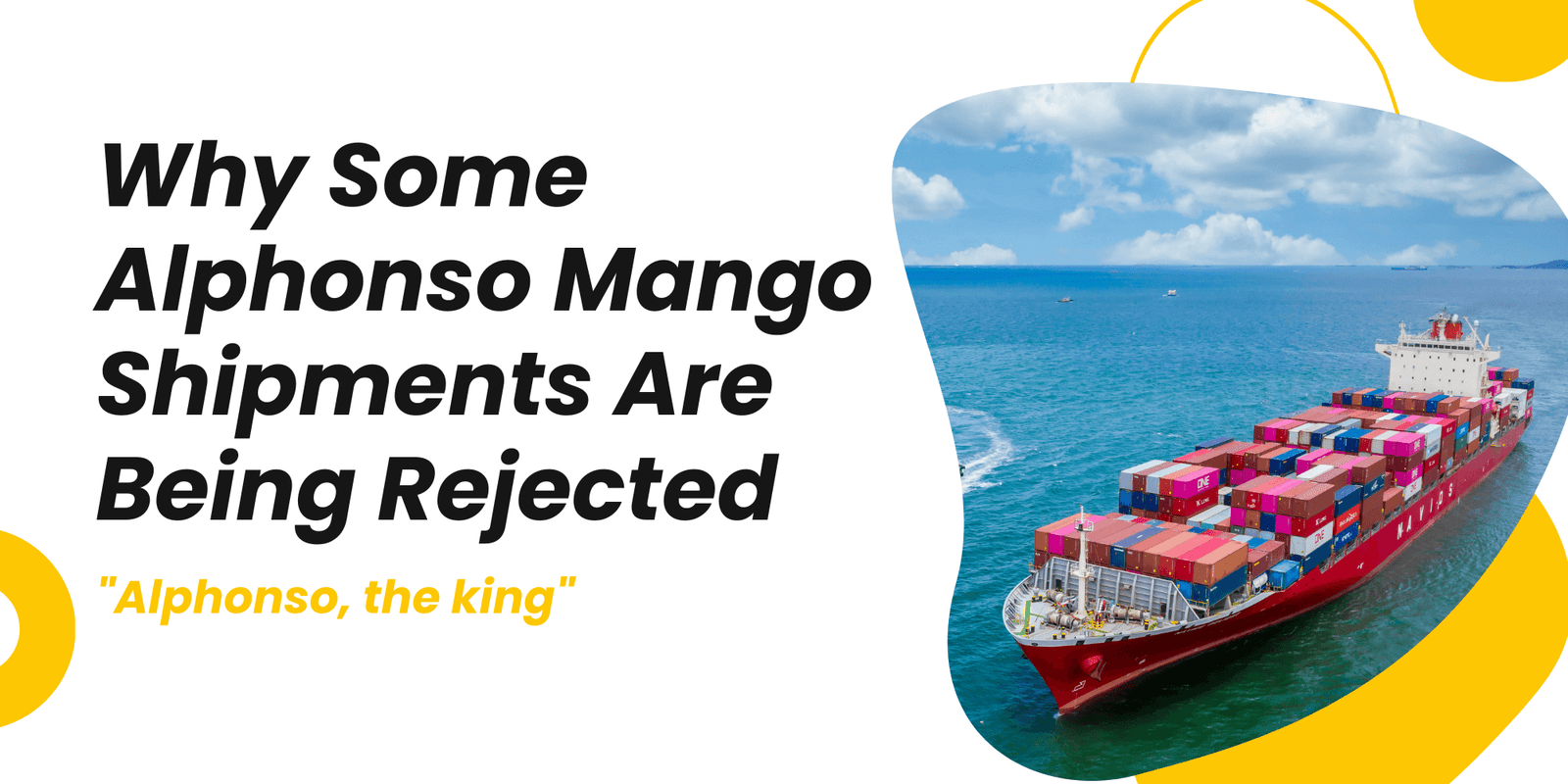
Every mango season, thousands of boxes of India’s beloved Alphonso mangoes leave ports like Mumbai and Nhava Sheva, destined for customers in the U.S., U.K., Europe, and the Middle East.
But in recent months, there’s been worrying news — several shipments of Indian mangoes were rejected or destroyed abroad, primarily due to documentation errors, non-compliance, or pesticide residue issues.
For an exporter, that’s not just a financial loss — it’s a blow to India’s reputation and the hard work of farmers who nurture every fruit with love.
Based on trade reports and APEDA alerts, here are the top reasons Alphonso mango shipments face rejections at ports:
| Region | Compliance Focus | Required Certificate |
|---|---|---|
| U.S.A. | Irradiation & APHIS pre-clearance | USDA / APHIS Certificate |
| E.U. | Pesticide residue limits (MRL) | Phytosanitary Certificate + MRL Lab Report |
| Middle East | Origin verification & ripeness | Health Certificate + GI Tag |
| U.K. | Traceability (farm to box) | DEFRA Compliance Certificate |
This growing list of checks ensures consumer safety — but it also means exporters need perfect documentation and traceable supply chains.
At Ratnagiri Hapus Store, we’ve built a zero-compromise export system to make sure our fruits reach your doorstep safely, legally, and in perfect condition:
While others race to meet order deadlines, Ratnagiri Hapus Store takes the long view — prioritizing reliability, documentation, and customer trust.
We believe authentic Alphonso deserves authentic handling.
Our motto: “If it’s not fully compliant, it’s not Ratnagiri Hapus.”
When you order from us — whether you’re a retailer in Dubai or a family in London — you’re not just buying a fruit.
You’re buying Konkan’s pride, protected by compliance, care, and integrity.
As India’s mango exports grow, so do the regulations — and that’s a good thing. It keeps the brand “Ratnagiri Hapus” synonymous with quality, purity, and trust.
While others struggle with rejections, we focus on prevention.
Our fruits pass every test — so the only thing you taste is sweet success.